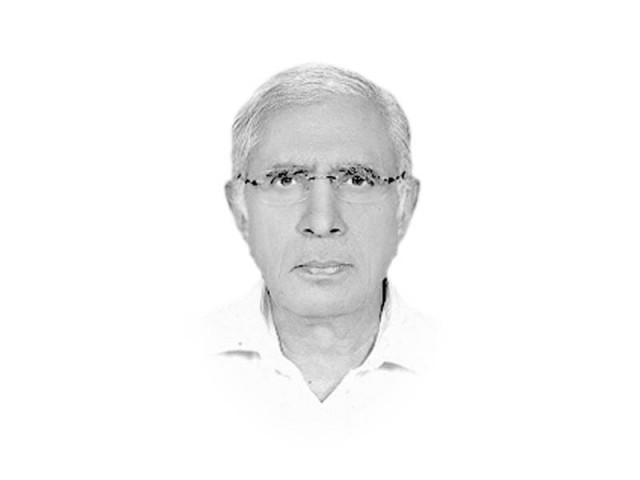A lesson and some hope
US is an imperialist country. Such countries make friends, enemies on their own terms and in their own self-interest

The writer served as Executive Editor of The Express Tribune from 2009 to 2014
And the hope? This is again not a very complicated proposition to understand if we temper Pakistan-US relations with our national self-interest rather than see Washington’s moves that it makes for promoting its own global self-interest as a conspiracy to force us to accept Indian hegemony in the region. The US is an imperialist country. Such countries make friends and enemies on their own terms and in their own self-interest and are not dictated by noble or altruistic sentiments in dealing with countries, most of whom they regard as their chattels. The best way to deal with such countries is to keep mutual conflicts reduced to the minimum and maintain focus on issues on which the two can cooperate.
Once, when in the early days of Pervez Musharraf’s rule, the media was lamenting almost on a daily basis that Pakistan was suffering from global isolation because of military rule, the dictator invited a group of senior journalists for a briefing on the issue and claimed that because of four reasons, Pakistan can never be consigned to isolation. His four reasons: 1) Hub of fundamentalism; 2) Hub of drug-trafficking; 3) Borders with China and; 4) Nuclear arms. This was clearly a disingenuous argument. All these four reasons are negative and because of three of these, Pakistan is being treated as a pariah by many countries. And even on the matter of sharing borders with China, it is interesting to see what Beijing is offering to India on the occasion. In a message to the Indian president on India’s Republic Day, his Chinese counterpart expressed China’s willingness “to make concerted efforts with India to lift their strategic cooperative partnership oriented to peace and prosperity to a higher level”. An article on January 26 that appeared in the Global Times and People’s Daily, pointed out: “As both are emerging powers, which have the huge potential of being important forces in the international community, China and India should see more space for cooperation instead of contention.”
So it is by exploiting the common grounds, like eliminating terrorist safe havens from our soil and helping Kabul establish peace and stability in Afghanistan, that we could be in a position to encourage the US to leverage its increased understanding with the Indian leadership to help diffuse the nuclear flashpoint that the region has become because of the unresolved Kashmir dispute. Even for India to play ‘a central role beyond its borders’ with almost half of its population still writhing below the poverty line, it will first have to come to some kind of peaceful settlement with Pakistan on all the contentious issues plaguing their bilateral relations.
Published in The Express Tribune, January 28th, 2015.
Like Opinion & Editorial on Facebook, follow @ETOpEd on Twitter to receive all updates on all our daily pieces.















COMMENTS
Comments are moderated and generally will be posted if they are on-topic and not abusive.
For more information, please see our Comments FAQ